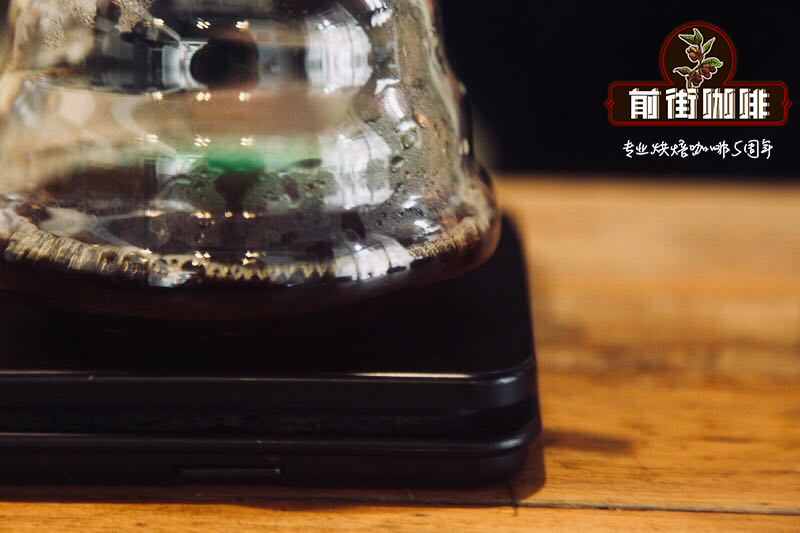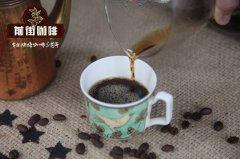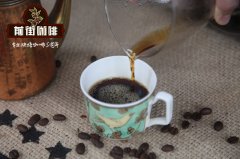Ethiopian Coffee beans | Ethiopian Coffee producing areas | Yega Xuefei ECX selected Water to wash G1

Professional coffee knowledge exchange more coffee bean information please follow the coffee workshop (Wechat official account cafe_style)
ECX specially selected water to wash G1 in Yega Sheffield town, Ethiopia.
Ethiopia washed Yirgacheffe ECX Specialty G1
2017 Dec. Newly produced seasonal beans
Variety: Heirloom native species
Producing area: Ethiopia Yirgacheffe Yega Xuefei, Ethiopia
Treatment method: Washed / washing treatment method
Class: E C X selected G1
Altitude: 1800-2000 m
Flavor description: wild ginger, spice Earl Grey Tea, cocoa, sweet and juicy, smooth taste
The Ethiopian Commodity Exchange (ECX-Ethiopia Commodity Exchange) is an agricultural market where buyers and sellers come together to trade, ensuring quality, delivery and payment. ECX's vision is to change Ethiopia's economy by becoming the first choice in global commodity markets. ECX's mission is to connect all buyers and sellers in an efficient, reliable and transparent market through the use of innovation and technology, based on continuous learning, fairness and commitment to excellence.
ECX distributes regional warehouses throughout Ethiopia, providing collection, grading and storage of crops, and then enters a unified trading and auction platform to buy and sell transactions for registered members of ECX. The buyers here are actually private exporters, and Ethiopia has required all private exporters to buy and sell coffee beans through ECX since 2008. Its problem is that it just doesn't meet the traceability requirements of current buyers. ECX trades coffee only by region and fails to tell you which processing station it comes from, or it may come from many different processing stations and may be mixed together in sacks and auctioned in a large batch. But I believe that after the following rigorous selection of the Speciality G1, will you still question its quality?
Ethiopia's old grading method was simply classified according to the number of defects. The highest grade of beans washed with water was Grade 1-G1 and the highest grade of sunlight was Grade 3-G3. The current grading method is based on the combination of physical attribute characteristics and cup flavor characteristics established by ECX.
All coffee is defined as three types according to the way it is treated, insolated or washed:
A. Speciality (washed & unwashed): the number of defects is small, and the cup test has high flavor quality.
B. Commerical (washed & unwashed): not up to the boutique level, but higher than the domestic consumption grade
C. Local / Domestic (washed & unwashed): coffee with a large number of defects (unripe beans), out of season and poor storage.
Among them, Specialty and Commerical are aimed at the international export market, and Local is the coffee sold for the domestic market.
The specific grading and scoring criteria of ECX are as follows:
a. Score definition of washing treatment method
1. Physical characteristics account for 40%: number of defects (20%), appearance size (10%), color (5%), smell (5%).
2. 60% of the cup quality: cleanliness (15%), acidity (15%), taste (15%), flavor characteristics (15%).
b. Score definition of solarization treatment
1. Physical characteristics account for 40%: number of defects (30%), odor (10%)
2. 60% of the cup quality: cleanliness (15%), acidity (15%), taste (15%), flavor characteristics (15%).
c. Overall summary:
1. According to the method of treatment, all coffee is classified as: sun exposure, water washing.
two。 Each scored 9 grades of G1-G9 according to physical characteristics and cup test basic quality.
3. The G1-G3 is tested again according to the SCAA standard, and its flavor attribute is evaluated in more detail, and the flavor attribute is not lower than that of the cup.
G1GI G2 with a score of 85 is rated as Q1
4. It is rated as Q2 for G1meng G2 G3 between 80 and 85, and G3 for all G1 Magi G2 G3 with scores below 80.
5. Q1 and Q2 are classified as Specialty Grade exports. G4-G9 kept the original grade unchanged and was classified as CommercialGrade export together with G3.
Qianjie coffee: Guangzhou bakery, the store is small but a variety of beans, you can find a variety of unknown beans, but also provide online store services. Https://shop104210103.taobao.com
Important Notice :
前街咖啡 FrontStreet Coffee has moved to new addredd:
FrontStreet Coffee Address: 315,Donghua East Road,GuangZhou
Tel:020 38364473
- Prev

Ethiopian coffee beans | Ethiopian coffee producing areas | Guji Kaiyong Mountain Farm washing
Professional coffee knowledge exchange more coffee bean information please follow coffee workshop (Wechat official account cafe_style) Ethiopia coffee bean Guji Kaiyong Mountain Farm washing Ethiopia Guji Kayon Mountain washed production country: Ethiopia Ethiopia production area: Guji Guji Farm: Kaiyong Mountain Farm Kayon Mountain producer: Ato Esmae
- Next

Ethiopian Coffee beans | Ethiopian Coffee producing areas | Yedamei Cooperative
Professional coffee knowledge exchange more coffee bean information please follow the coffee workshop (Wechat official account cafe_style) Ethiopian coffee Yega Xuefei G1 Adamei Ethiopia Yirgacheffe G1 Washed Adame Gorbota ■ country: Ethiopia ■ coffee producing area: Vanaguo ■ altitude: 1750m ■ treatment: washed ■ grade: G1 ■
Related
- Detailed explanation of Jadeite planting Land in Panamanian Jadeite Manor introduction to the grading system of Jadeite competitive bidding, Red bid, Green bid and Rose Summer
- Story of Coffee planting in Brenka region of Costa Rica Stonehenge Manor anaerobic heavy honey treatment of flavor mouth
- What's on the barrel of Blue Mountain Coffee beans?
- Can American coffee also pull flowers? How to use hot American style to pull out a good-looking pattern?
- Can you make a cold extract with coffee beans? What is the right proportion for cold-extracted coffee formula?
- Indonesian PWN Gold Mandrine Coffee Origin Features Flavor How to Chong? Mandolin coffee is American.
- A brief introduction to the flavor characteristics of Brazilian yellow bourbon coffee beans
- What is the effect of different water quality on the flavor of cold-extracted coffee? What kind of water is best for brewing coffee?
- Why do you think of Rose Summer whenever you mention Panamanian coffee?
- Introduction to the characteristics of authentic blue mountain coffee bean producing areas? What is the CIB Coffee Authority in Jamaica?

